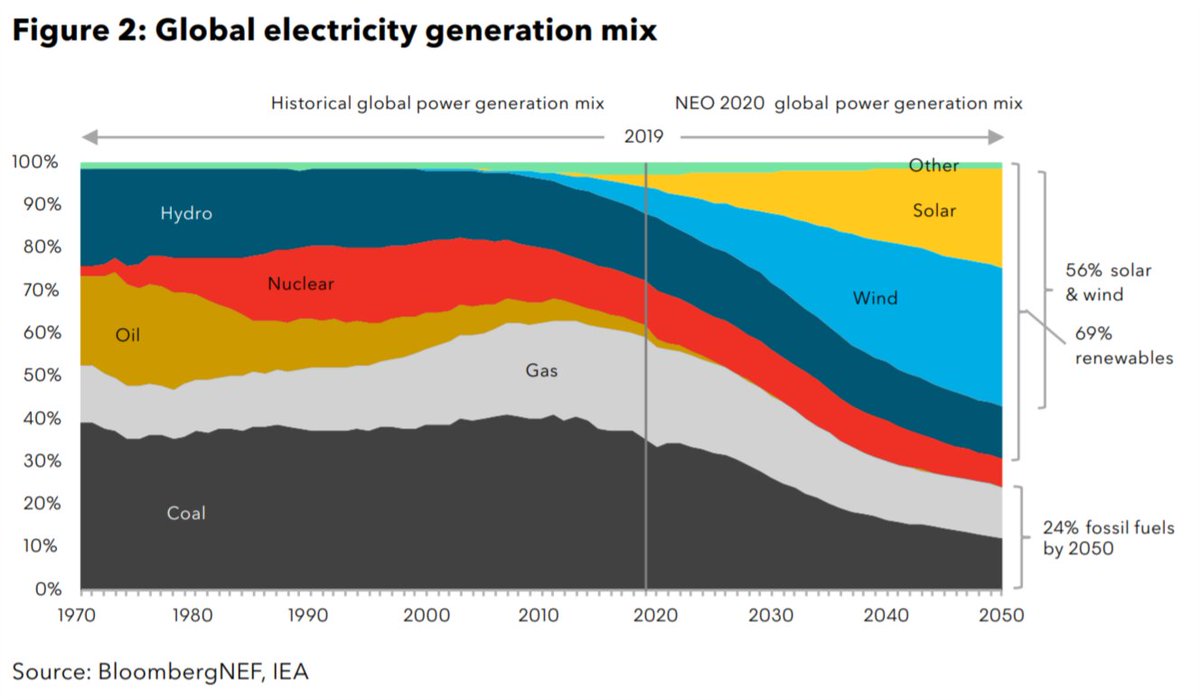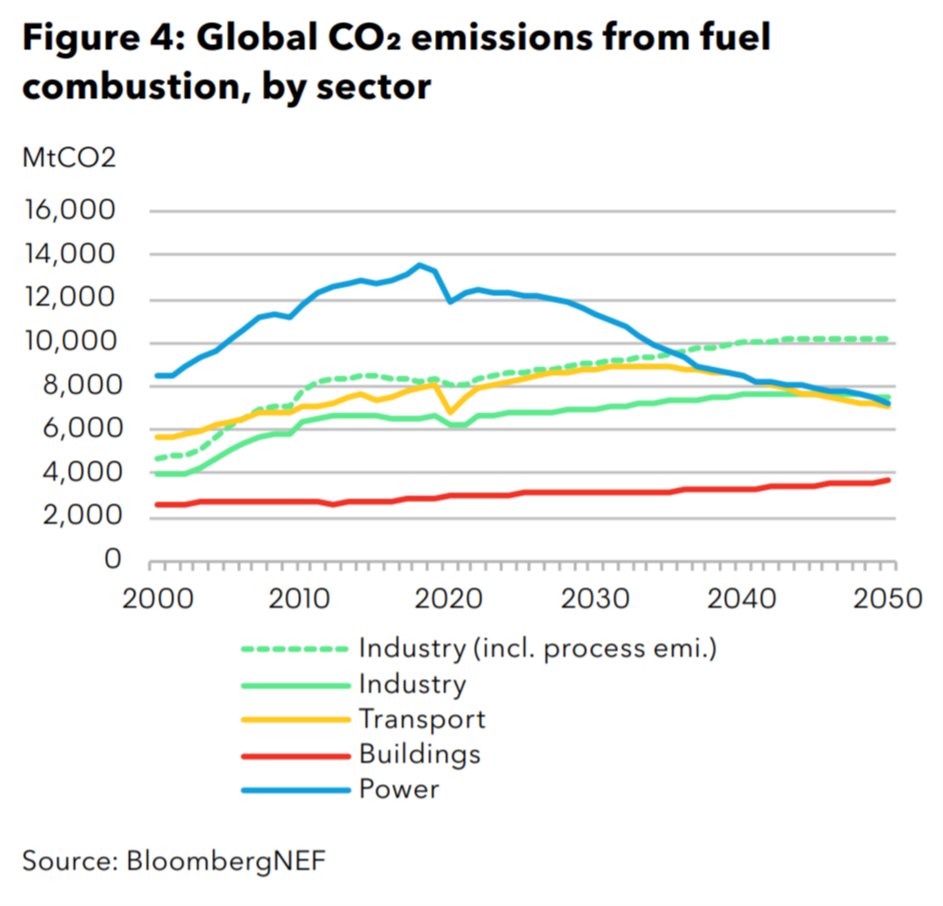
Today @BloombergNEF published its Zero Emission Vehicle (ZEV) Factbook. Great stuff in here, starting with this: EV sales were 7% of passenger vehicle total in 2Q 2021. 🧵/1 bloomberg.com/professional/d… 

🧵/2 Expecting 5.6 million EVs sold this year, up from 3.1 million in 2020 bloomberg.com/professional/d… 

🧵/3 Electric vehicle outlooks are more bullish every year bloomberg.com/professional/d… 

🧵/4 EV sales projections are more bullish every year bloomberg.com/professional/d… 

🧵/5 pure electric sales >> plug-in hybrid sales, except in Europe bloomberg.com/professional/d… 

🧵/6 pure electric sales >> plug-in hybrid sales, except in Europe bloomberg.com/professional/d…
🧵/7 Electric 2-wheeler sales are 9x higher than passenger EV sales bloomberg.com/professional/d… 

🧵/8 clean road transport vehicle and infrastructure investment this year will be just under a quarter trillion dollars bloomberg.com/professional/d… 

🧵/9 A number of automakers are now 20%+ EV sales in Europe bloomberg.com/professional/d… 

🧵/10 There are now more than 500 battery electric, plug-in hybrid, and fuel cell car models available (this chart ends 4Q 2020) bloomberg.com/professional/d… 

🧵/11 new EV models have greater and greater range, with 2022 models averaging 400 kilometers bloomberg.com/professional/d… 

🧵/12 New EVs charge faster than ever too bloomberg.com/professional/d… 

🧵/13 Lithium-ion battery cell manufacturing capacity has nearly doubled since 2019. It will grow ~5x by 2025 bloomberg.com/professional/d… 

🧵/14 Really important: upfront price parity for electric vehicles is coming, and that right soon (cc @conorsen) bloomberg.com/professional/d… 

🧵/15 the number of home EV chargers has tripled since 2019. The number of public chargers has doubled since 2019 bloomberg.com/professional/d… 

🧵/16 Automakers are now targeting 40 million EV sales a year by the end of the decade bloomberg.com/professional/d… 

🧵/17 ...and, capex commitments. As someone once said, capex is destiny. Take note of one rather major outlier on EV capex bloomberg.com/professional/d… 

🧵/18 Automakers with commitments to phase out internal combustion engines represent 27% of the global auto market bloomberg.com/professional/d… 

🧵/19 manufacturers covering 58% of the auto market have set some form of net-zero target bloomberg.com/professional/d… 

🧵/20 There are a lot of places planning to phase out internal combustion engine vehicle sales! bloomberg.com/professional/d… 

🧵/21 All that and much more from @BloombergNEF and transport team. Check it out /END bloomberg.com/professional/d…
• • •
Missing some Tweet in this thread? You can try to
force a refresh

















